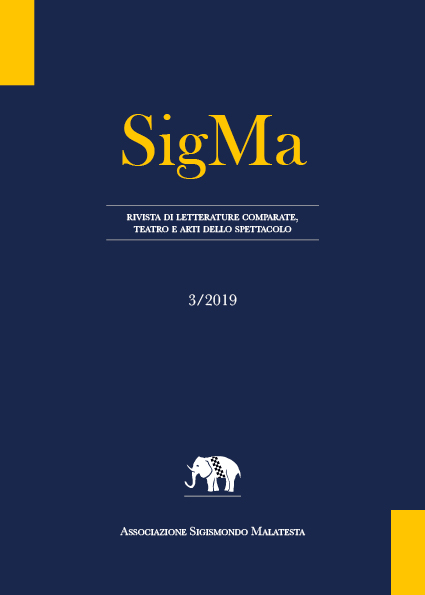“For I love thee against my will”. From Comicality to Humorousness in “Much Ado About Nothing”
Abstract
In Much Ado About Nothing, one of his most brilliant comedies, Shakespeare mocks and attacks the amorous language used by the aristocracy during the painful process of civilization (N. Elias) that the emergence of European courts demanded. The “war of love” engaged by two among the most popular and witty Shakespearean characters stages the resistance of a warlike aristocracy to give up part of its own power and to surrender to the authority of the sovereign. Given to two character-fools, however, the critique of political obedience is articulated in the form of a comical as well as sparkling spat that allows Shakespeare to elevate the comedy to humoristic and painful acknowledgement of court discipline.
Downloads
SigMa Journal is an open access, online publication, with licence:
|
|
CCPL Creative Commons Attribution |
The author retains the copyright of his work whilst granting anyone the possibility “to reproduce, distribute, publicly communicate, publicly exhibit, display, perform and recite the work”, provided that the author and the title of the journal are cited correctly. When submitting the text for publication the author is furthermore required to declare that the contents and the structure of the work are original and that it does not by any means compromise the rights of third parties nor the obligations connected to the safeguard of the moral and economic rights of other authors or other right holders, both for texts, images, photographs, tables, as well as for other parts which compose the contribution. The author furthermore declares that he/she is conscious of the sanctions prescribed by the penal code and by the Italian Criminal and Special Laws for false documents and the use false documents, and that therefore Reti Medievali is not liable to responsibilities of any nature, civil, administrative or penal, and that the author agrees to indemnify and hold Reti Medievali harmless from all requests and claims by third parties.

